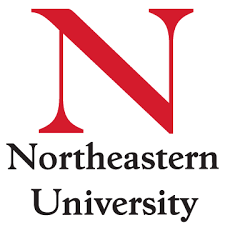The Master in Organizational Leadership prepares managers for the human side of management, developing strategies that increase retention, decrease turnover, and help companies take full advantage of their human capital. The best organizational development masters programs take all of the principles of management and present them in a human-focused instead of a theoretical approach.
This article was originally published in January 2017 and updated/revised in January 2024.
Professionals who embark on an online Master’s in Organizational Management degree will learn how to use their emotional intelligence to work with people and develop creative solutions to common problems within organizations. The Master’s in Organizational Leadership degree is more relevant than ever, with companies seeking ways to recruit and retain top talent.
It has become a human resources challenge to find the right people to fill open positions, and to keep them on board to grow with the organization. The best organizational development master’s programs address these and other common challenges and prepare students to lead for-profit, government, and non-profit organizations.
Courses of Study
Some of the main courses of study include:
- Human Resource Management
- Conflict Resolution
- Communication
- Mediation
Students can also choose specializations to further their expertise in specific areas of study. Popular leadership master degrees offer specializations in areas like:
- Nonprofit Management With a Specialization in Non-Profit Management – Students learn to run not-for-profit organizations, both small and large. In this track, you will learn how to manage fundraising campaigns and recruit top talents like development staff, administrative staff, and volunteers. You will also learn to manage organizations while meeting standards for non-profit operations.
- Organizational and Leadership Coaching – A management track with a focus on organizational and leadership coaching is a “train the trainer” of sorts and will prepare you for consulting and leading through coaching. Students who take this course of study will be prepared to lead teams through careful business analysis and in-depth professional and executive coaching. You will learn how to advise organizations on hiring practices and develop strategies for motivating and retaining staff.
- Healthcare Management – Students specializing in healthcare management prepare for careers in hospitals, clinics, and independent labs. Graduates of these programs go on to manage hospital teams, develop operations strategies, and create plans for growth and expansion. Healthcare management students learn the ins and outs of hospital operations and work in real-world simulations that help them understand how to lead healthcare organizations.
- Project Management – The degree in project management guides the student through the entire process of developing and delivering projects. The project management concentration allows students to explore the full range of the project management process, from conception to completion. Students prepare to work on teams in corporations and startups.
Related (Campus):
- Top Project Management Master’s
- Best Master’s Degree in Business Administration
- Top Master’s in Entertainment Business Degrees
- Best Entrepreneurship MBA
Related (Online):
- Top Master’s of Nonprofit Management Online
- Top Online MBA Programs
- Best Online Master’s in Supply Chain Management
- Best Online Sports Management Master’s
#TheGeorgeWashingtonUniversity #GonzagaUniversity #ManhattanCollege #QuinnipiacUniversity #FresnoPacificUniversity #SaintJosephsUniversity #RegisUniversity #NorthwesternUniversity #NortheasternUniversity #SaintLouisUniversity #UniversityofDenver #SaintMarysUniversityofMinnesota #UniversityofSouthDakota #NorwichUniversity #RobertMorrisUniversity
Top 15 Best Organizational Leadership Master’s Programs
Please Note: Tuition was accurate at time of writing and is subject to change.
The George Washington University

The George Washington University has a strong reputation for academic excellence and is one of the top schools for the Organizational Leadership Master’s Degree. The school offers an online program that is geared toward working adults and professionals in the field.
The online Master’s degree in Organizational Leadership prepares you with the tools you need to manage teams, make solid hiring choices and manage a project. In this program, students learn to progressively build on their leadership skills while working in cohesive teams.
The Master’s in Organizational Leadership at The George Washington University is rigorous and pushes students to think beyond their boundaries. Many students in the program are already professionals in their fields and are seeking an advanced understanding of the subject matter.
The program is frequently updated to deliver the most timely information in the face of an ever-changing marketplace. Arguably the most highly rated master’s program for organizational leadership, The George Washington University’s online degree program is both convenient and relevant.
Jobs with a Master’s in Organizational Leadership and Learning include the following work settings:
- Corporate recruiting
- Government agencies
- Think tanks
- Non-profit organizations
- Higher education
Gonzaga University

The online arm of this Spokane, Washington University offers an accelerated program that allows you to earn your Master’s in Organizational Management in as little as 18 months. The 30-credit program includes courses in:
- Leadership
- Ethics
- Human Resources Management
- Ethics
Students are challenged to uncover common problems in leadership and management and to develop creative and innovative solutions to those problems. Gonzaga University offers:
- flexible scheduling
- rolling admissions
- scholarships
The university also offers discounts for full-time teachers, principals and clergy in the Diocese of Spokane.
Graduates of Gonzaga University have gone on to be leaders in industries such as
- Microsoft
- Pay Pal
- Lyft
- Starbucks
- Nike
- Walt Disney Company
- Proctor & Gamble
- UN Refugee Agency
Manhattan College

Set in the backdrop of vibrant New York City, Manhattan College is one of the top schools for the Master’s in Organizational Management. The University offers an accelerated online program that is tailored for the working student and is comprised of more than 25 courses in:
- Management
- Leadership
- Communication
The program focuses heavily on:
- Interpersonal Communication
- Organizational Psychology
- Human Resource Management
The degree program starts with a personalized assessment of the student’s strengths and weaknesses, creating a program that is tailored to their needs. It ends with a capstone project in which students apply their learning to real-world settings.
This top online Master’s in Organizational Leadership will prepare you with skills that employers are looking for such as critical thinking, problem-solving, and clear communication. Jobs available from a Master in Organizational Leadership include:
- Corporate recruiter
- Department Director
- Human Resource Manager
- Management Analyst
- Marketing Manager/Director
- Medical/ Health Services Manager
- Operations Manager/Director
Quinnipiac University

Based in Connecticut, Quinnipiac University has one of the top-rated programs in Organizational Leadership and Management. Their online program can be completed in as little as 18 months, with an accelerated program that is customized for professionals in the field.
Students work in small groups, developing strategies and policy decisions that transform organizations, both small and large. This MS in Organizational Leadership program focuses heavily on:
- self-awareness
- ethics
- forward-thinking
- interpersonal leadership
Students are encouraged to understand the value of human capital in the workplace.
Quinnipiac has many national accreditations and ratings in esteemed publications such as U.S. News & World Report and The Princeton Review.
Fresno Pacific University

One of the most affordable programs, Fresno Pacific University, offers an online MA in Strategic and Organizational Leadership. The program, which students can complete in as little as 18 months, costs less than half of that of other online universities. The roster of instructors includes top talent in:
- Healthcare
- Non-profit
- the corporate sector
Students in Fresno Pacific’s Master’s program learn what is needed to step into positions of management and work as directors and high-level executives.
Students in this online Master in Leadership and Organizational Studies will be prepared for jobs such as
- Senior Management
- Non-Profit Administration
- Business Planning
- Community Leadership
Saint Joseph’s University

This college is based in Philadelphia and offers its MS in Organizational Leadership and Development completely online. In this program, students are presented with theoretical concepts that they can apply to real-world managerial challenges. Students at this top Master’s in Organizational Leadership and Development program are encouraged to find solutions to these problems and use their industry knowledge to develop new business concepts.
If you are inspired to bring change to a work environment through effective strategies and a positive work environment, this online MSOLD should be considered. This online master’s also includes a four-day campus experience, Change Leadership, in Philadelphia, where students are allowed to interact with peers and faculty. Students will learn more about their own abilities, strengths, and vision for change in this Master’s in Leadership program.
Regis University

The College of Business and Economics offers an online Master’s in Organizational Leadership, with a focus on leadership and management. In this program, students take a strategic approach to leadership, building on their existing skills while formulating plans to tackle new ones. Students can also take specialization courses in:
- Enterprise Resource Leadership and Management
- Human Resource Management
- Project Management
This masters in organizational leadership is worth it as this top Jesuit school is known for producing dependable, trustworthy leaders who are effective in the workforce.
Northwestern University

Northwestern University offers the MS in Learning and Organizational Change (MSLOC) as a part-time online and part-time on-campus degree. This allows students from anywhere in the US to take advantage of this prestigious master’s degree. The school also offers career coaching and alumni support from its extensive network.
Prospective students might consider the MSLOC as an alternative to an MBA as this program truly focuses on people and not just business. This top online Master in Learning and Organizational Change prepares graduates to operate effectively in any environment working in areas like:
- Strategic Change
- Organizational Culture
- Learning and Performance
Those looking for innovative teaching, a curriculum based on the newest research, and wanting to make continuous organizational change, should look into MSLOC’s master’s program.
Northeastern University

Northeastern University offers a top online MS in Organizational Leadership that prepares its students to face the challenges that arise in today’s changing world.
They have a unique method for developing leaders which has led to a partnership with the International University in Ho Chi Minh City in Vietnam and Swinburne University of Technology in Melbourne, Australia. This partnership allows students to benefit from the experience of their faculty and from a global community.
This accredited online master’s degree in organizational leadership can be completed in 1.5- 2 years. The flexible program fits right into the schedule of a working professional.
Saint Louis University

Offering both online and in-person courses, Saint Louis University (SLU) offers a 36-hour MA in Organizational Leadership and Development designed specifically for working adults. The program is completed in eight-week increments making it a great fit for working professionals.
Students of this top online Master’s in Leadership and Development program are expected to develop in three key areas—interpersonal, group and organizational development. Creativity and ethical solutions are used to solve existing problems in a project-based learning environment. Graduates will find this master’s worth it as they are ready to apply the skills necessary for their future careers.
University of Denver

The University of Denver offers the Master’s of Organizational Leadership and is regarded as one of the top schools for business in the West. Students can blend both online and in-person courses, and the degree can be completed in as little as 30 hours. Required coursework includes courses in:
- Quantitative Analysis
- Business Strategy
- Sports Management
- Non-profit Management
- Human Resources Planning
- Strategy and Execution
This Master’s in Organizational Leadership program has been ranked in the top 100 schools by U.S. News and World Report.
A concentration in organizational development is also available. This will prepare graduates to assess and create models of change within an organization as well as develop a philosophy of change.
Saint Mary’s University of Minnesota

Designed to mirror that of the typical workplace, Saint Mary’s University’s Master of Organizational Leadership consists of five themed semesters. Each semester tackles another major challenge or issue faced by upper-level managers. The themed semesters are:
- Learning Leader
- Connected Leader
- Adaptive Leader
- Global Leader
- Strategic Leader
Saint Mary’s University of Minnesota has a heavy focus on the use of new technology in developing innovative solutions to new and existing workplace problems.
This top online Master’s in Organizational Leadership includes learning from real-world practitioners, teaches responsible decision making and prepares graduates to collaborate and be adaptable. Every student in the online master’s program receives an iPad, so staying connected and engaging with the curriculum is made easy.
University of South Dakota

The MS in Administration offers a specialization in Organizational Leadership that prepares students for positions in high-level management. The program offers courses that simulate real-world business scenarios. Core courses include those in:
- Business Writing
- Managerial Communications
- Leadership
Students embark on a 24-credit hour plan of study, which culminates in a final project. Students work together in cohorts, completing a series of modules on a range of topics.
This MSA- Organizational Leadership requires a five-day residency which gives students a chance to meet faculty and their peers. Graduates with this Master’s in Organizational Leadership can expect to find jobs in administration and are prepared to lead and manage, problem-so
Norwich University

Norwich University offers an MS in Leadership with a concentration in Organizational Leadership.
The program is geared toward working adults and offers flexible scheduling and professors with industry knowledge and experience. The students hail from a wide range of sectors, from non-profit to government and private corporations. There is a strong focus on community involvement using the tools learned in the program.
This degree can be completed in as little as 18 months, and many students embark on the 30-hour program while working full-time. This affordable school has been ranked as Best Value by U.S. News & World Report making this top master’s degree in organizational leadership an excellent value.
Robert Morris University

Robert Morris University’s online Master’s degree in Organizational Leadership focuses heavily on student experience and takes advantage of their in-depth knowledge of a wide variety of industries, from non-profit to small business.
This best online program allows students to delve deeper into the minds and methodologies of leaders to learn how they:
- Use Theories and Strategies
- Navigate Conflict
- Engage in Critical Thinking and Information Management
They also analyze organizational behavior and tailor it to common challenges.
The program consists of seven required courses and six elective courses. Students work in groups and individually on varied projects.
Robert Morris University’s master’s program offers flexible schedules that are tailored to the schedules of working professionals. Students learn from business leaders and faculty who are masters in their fields. There is a focus on relationship-building and interpersonal communication.
Frequently Asked Questions
Salaries for upper-level managers increase with increased credentials, and graduates with degrees in Organizational Management earn higher than average salaries. According to Payscale.com, the median salary of upper-level managers is $79,000. The top managers earn a median salary of more than $145,000, which makes the masters in Organizational Leadership worth it. The salary can vary by geographic region.
Many graduates go on to work for Fortune 500 companies, non-profit agencies, and the government. Others go on to run small companies and work in consulting and coaching. According to the Society for Human Resource Management, nearly a third of all C-level managers hold a master’s degree, many of them master’s degrees in leadership or business.
The value of a master’s in organizational leadership depends on career goals. It can enhance leadership skills, job opportunities, and earning potential. Research programs, industry demand, and consider how it aligns with your aspirations before deciding.
An MBA focuses on general business administration, covering various aspects like finance, marketing, and strategy. A Master’s in Organizational Leadership specifically emphasizes leadership and management skills within an organization. Choose based on your career goals, as an MBA offers broader business knowledge, while a Master’s in Organizational Leadership provides a specialized focus on leadership.
The difficulty of a Master’s in Organizational Leadership depends on individual strengths, dedication, and the program’s curriculum. It typically involves challenging coursework in leadership theories, organizational behavior, and strategic management. Success depends on your commitment to learning and applying leadership principles in real-world scenarios.
A degree in organizational leadership offers diverse career opportunities in management, human resources, and consulting. The job outlook is generally positive, with demand for skilled leaders across various industries. Graduates can pursue roles such as managers, team leaders, and consultants, contributing to organizational success.
